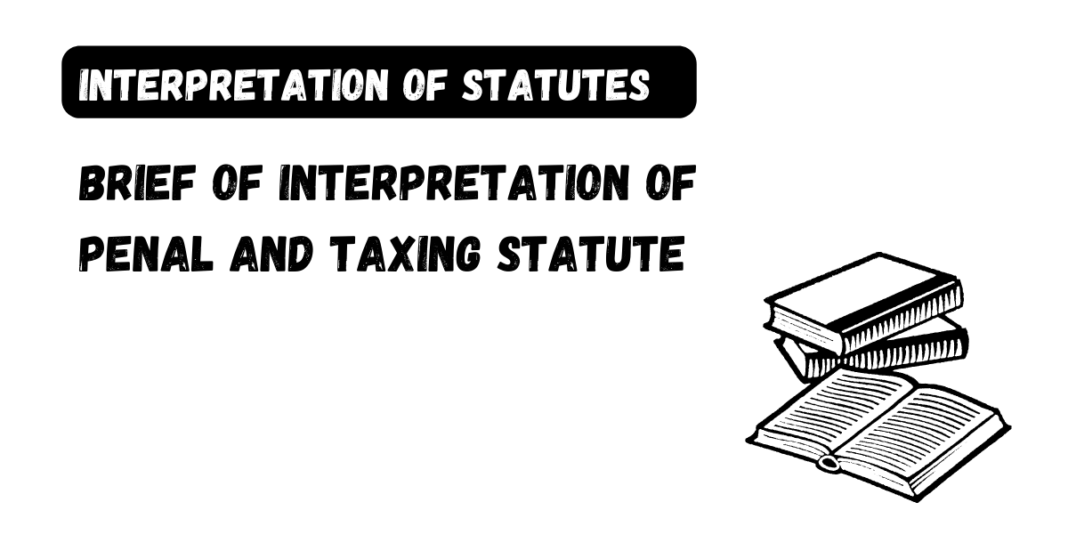The interpretation of penal and taxing statutes involves different legal principles and methods, due to the nature of these types of statutes.
Interpretation of Penal Statutes
Penal statutes are those that define crimes and prescribe punishments for criminal offenses.
The interpretation of penal statutes is guided by the principle of strict construction.
This means that penal statutes are interpreted narrowly and strictly, and any ambiguity or doubt is resolved in favor of the accused. This is because the consequences of a criminal conviction can be severe, and the law should not be used to punish individuals unless their guilt is clearly established.
Interpretation of Taxing Statutes
Taxing statutes are those that govern the imposition and collection of taxes.
The interpretation of taxing statutes is guided by the principle of purposive construction.
This means that taxing statutes are interpreted broadly, with a focus on the underlying purpose and policy of the statute. The courts will look beyond the literal wording of the statute to consider the intent of the legislature and the context in which the statute was enacted.





